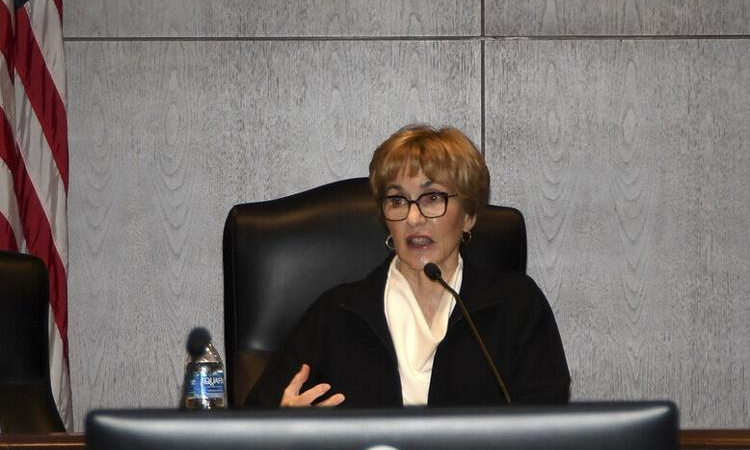Who Is Cameron Currie? The South Carolina Judge Who Tossed the Trump DOJ Indictments Against Comey and Letitia James
SC Judge Tosses Comey & Letitia James Indictments – Here’s Why It Matters
When the political world hit refresh on November 24, it wasn’t a candidate or a poll that drove the news cycle — it was a federal judge from Florence, South Carolina. Senior U.S. District Judge Cameron McGowan Currie issued a pair of rulings that effectively threw out Justice Department indictments against two of President Trump’s highest-profile rivals: former FBI Director James Comey and New York Attorney General Letitia James.
It took her fewer than 60 pages to bring the entire case to a halt. And while the White House says it will appeal — and Currie left the door open for prosecutors to re-file the charges — the judge’s signature now sits squarely at the center of one of the biggest legal stories of the year.
So who is Cameron Currie? And why does a federal judge in South Carolina keep showing up in some of the nation’s most politically charged fights?
Let’s walk through her background.
A Deep South Carolina Legal Pedigree
Cameron McGowan Currie was born in Florence in 1948, the daughter of respected attorney John Livingston McGowan and Virginia Bracey McGowan, a USC chemistry graduate. She’s one of three children and a product of the former McClenaghan High School.
Her academic path is as traditional as it gets for a South Carolina legal insider:
- University of South Carolina, Class of 1970
- George Washington University Law School, Class of 1975
- Clerkship with U.S. Magistrate Judge Arthur L. Burnett
After a brief turn in private practice, she became an Assistant U.S. Attorney in Washington, D.C., from 1978–1980 — early experience that would shape her approach to federal prosecutions for decades to come.
She returned home in the 1980s and stacked up an extensive résumé back in the Palmetto State:
- Federal prosecutor
- U.S. Magistrate Judge
- Law school professor
- And ultimately, U.S. District Judge, nominated by President Bill Clinton in 1994
Her nomination was so uncontroversial that then-Senate Judiciary Chairman Joe Biden advanced it without even issuing a written report. She was confirmed by simple voice vote and took senior status in 2013.
A Judge With a Long, Sometimes Controversial Footprint
Most of Currie’s work lives inside South Carolina’s borders — but she’s no stranger to headlines.
Desegregation & First Amendment Battles
- Early in her tenure, she weighed in on a long-running desegregation case in the Pee Dee.
- She later ruled South Carolina’s ban on billboard ads for adult entertainment stores unconstitutional, siding against then-Attorney General Henry McMaster.
- She also struck down a pro-Christian license plate design approved by state lawmakers.
Those rulings alone made her a familiar name among attorneys who follow First Amendment issues.
The Judge Who Jailed a Plaintiff for Cussing Her Out
Yes — this happened. Cornell Law School’s legal blog still gets traffic on a post about Currie jailing a courthouse plaintiff for months after he verbally unloaded on her inside the federal building. It’s one of the most-read summaries of any case she’s touched.
High-Profile Political Ripples
She’s crossed paths with political drama before:
- 2010: She issued a ruling connected to the bizarre U.S. Senate race won by Alvin Greene, upholding Greene’s upset over Vic Rawl — a decision watched nationally at the time.
- 2023–2025: She weighed in on battles involving the South Carolina House Freedom Caucus, including rulings that allowed the conservative bloc to raise money against fellow lawmakers.
- She also oversaw the prosecution of Freedom Caucus founder Rep. R.J. May on child sexual abuse material charges — a case that drew statewide attention.
The Alex Murdaugh Chapter
Currie may be best known for a short but widely quoted 20-page ruling denying Alex Murdaugh’s attempt to block the release of his jailhouse phone calls to the media. Several state judges declined to touch the request — Currie took it and delivered a clean, direct answer: the public had a right to hear them.
Why She Tossed the Indictments Against Comey & Letitia James
In the ruling now under the national spotlight, Currie didn’t weigh in on guilt or innocence. She didn’t exonerate anyone. Instead, her decision centered on a procedural — but powerful — argument:
The prosecutor wasn’t lawfully appointed.
The DOJ had tapped Lindsey Halligan, a former Trump White House aide serving as an interim U.S. attorney, to handle the indictments. Currie ruled that Halligan’s appointment was not lawful under federal statutes — and that meant the indictments themselves were invalid.
Her ruling leaves open the option for the Justice Department to re-file the cases through a properly appointed attorney. And the White House has already signaled that an appeal is coming.
But for now, her signature is the reason Comey and James no longer face active federal indictments.
Why Her Role Matters Now
Cameron Currie isn’t a household name — but she is a veteran judge with a long track record of stepping into politically tense cases and delivering firm, sometimes surprising rulings.
For supporters of President Trump, the situation raises obvious questions:
- Why was an improperly appointed prosecutor handling cases this sensitive?
- Was this a legal misstep, a bureaucratic oversight, or part of a deeper issue within DOJ leadership?
- And how quickly will the appeals process move?
For legal observers, Currie’s decision reinforces something else: federal judges guard procedure fiercely, regardless of who’s in political power.
And for South Carolinians, it’s another reminder that a Florence-born judge — who’s been shaping the state’s legal landscape for nearly five decades — just played a major role in a national political fight.
Watch the Full Breakdown
If you want the full commentary and a deeper dive into what this ruling means going forward, check out my YouTube segment linked at the top of this post.
And as always: stay informed, stay engaged, and stay grounded in the truth — because the details matter.













Leave a Reply
Want to join the discussion?Feel free to contribute!